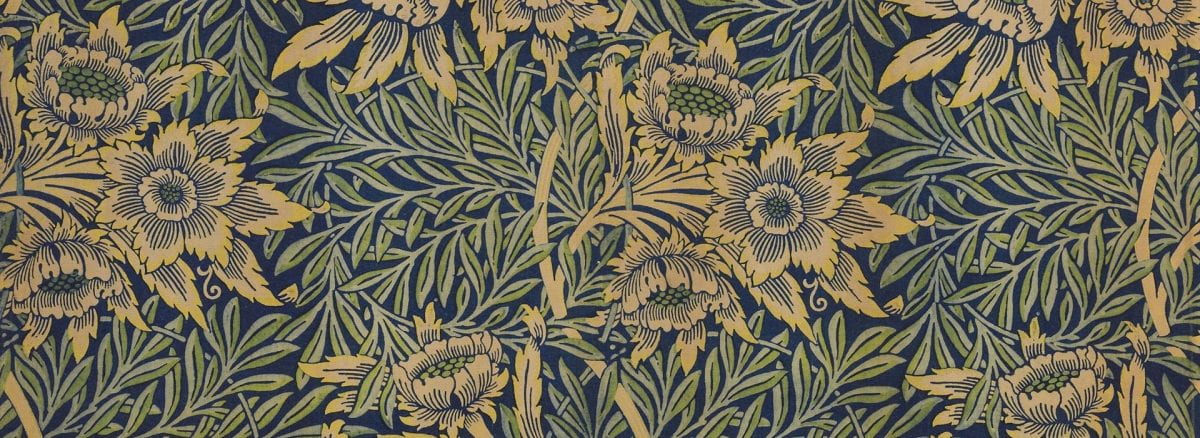In his lifetime, William Morris (British, 1834-1896) was known as a poet, author and social activist. Today we primarily know him as a father of the Arts and Crafts movement. Morris found the industrial manufactures of his time tawdry and sought a return to handcraft.
Morris started studying old craft techniques to design furnishings for his own home. He began by designing wallpaper and then expanded into textiles, using block-printing techniques for both. For every design, a pearwood block was carved for each color and then repeatedly stamped over the length and width of a textile. With the help of friends and business associates, Morris later marketed these designs to broader audiences.

The design on this curtain, “Tulip and Willow,” was Morris’ second fabric design, which he created in 1873. However, it took 10 years to properly print the design onto textiles. Morris disliked the initial fabrics printed with synthetic aniline dyes, so he became a master of natural dyeing processes. After three years of hands-on experimentation, he perfected an indigo-discharge technique that involved dyeing an entire fabric in indigo before bleaching the portions that would be printed with a design.
Morris was a genius pattern-maker with a gift for developing complex repeating designs. His disdain for industrialization and respect for nature have led historians to regard him as a pioneer of environmentalism. His work continues to inspire decorators and artists today.

